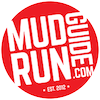In just three short years, Rachel Lotz, 26, has gone from recreational OCR athlete to winning one of the most difficult team endurance challenges in the Country. Her resume is as thorough as it is impressive, including several Spartan Hurricane Heats, two Agoge Challenges, the 2018 Death Race, SISU Iron, and both the GORUCK Selection and Team Assessment events, among others. I recently sat down with her to ask about her head-first dive into the world of endurance, how she feels about being a trailblazer for other women in the sport, and what's next on her hit-list.
Let's start at the beginning. How did you get involved in endurance events, and what have been some of your personal highlights over the last few years?
I signed up for a Spartan Hurricane Heat in 2017 in Portland, Oregon, following a Sprint earlier that day. It was my ‘home' race, so I figured there would be no better place to try something new. I didn't have to travel or spend any extra money, and if I didn't like it, I could just carry on with ‘normal' racing. I ended up finishing the event, and was hooked. One of my personal highlights was my first 12 hour Hurricane Heat in Castaic, CA. That event was a beatdown for someone who had no idea what they were doing, but receiving that finisher's patch is still one of my proudest moments. Another would have to be my first Agoge (Class 009) in Vermont, at which I met people I still consider some of my best friends in the endurance community. Lastly, would be my attempt at GORUCK Selection in 2019.
You, along with your partner Jenna Ravenscraft, recently placed first in the inaugural Female Division at GORUCK's annual Team Assessment Event. Tell us about that experience, and what it means to you.
Participating in Team Assessment was a unique experience for both Jenna and me. After failing to complete Selection last year, I really wanted redemption, but GORUCK postponed the 2020 Selection event to 2021, making Team Assessment the next best thing. It was Jenna's first GORUCK event, and I think, in a way, it prevented her from getting too much in her head and overthinking the event, since she truly had no idea what she was getting into. On the other hand, I hyper-focused for nine months on making sure I passed the PT test, which was what took me out at Selection the previous year. Ultimately, we came out of the event even better friends than when we started. It's a lot to ask someone to be your partner in one of these events. You're asking them to sacrifice their comfort, time, and money. I went into the event with a plan to dominate the PT test and simply prove to ourselves that we could finish. Winning the event never really crossed our minds, but it was certainly the cherry on top.
More women than ever are participating in endurance events. To what do you attribute the increase in numbers, and how do you feel about being a trailblazer for other women?
By no account do I consider myself a trailblazer for other women…I just like doing dumb stuff in the woods with my friends, and pushing myself to be a better person. I am happy, though, to see more women at endurance events, and that they know that they are just as capable as any of the men out there. I think a large part of the increase in numbers, for both men and women, has to do with increased promotion by the companies that are running the events. Especially now, digital marketing and social media really run our world. I feel like, when I first started, the endurance community was kind of ‘hush-hush' and driven very much by word of mouth. Now you can find quite a bit of information about events by going on Facebook or reading someone's blog.
You were already involved in OCR before venturing into the world of endurance. How do you view the relationship between the two, and what do you think of hybrid events like the Spartan Ultra or World's Toughest Mudder?
Personally, I think OCR and endurance events are like a sliding scale. Typically, an athlete leans far to one side or the other. Of course, there are exceptions to this, where some very talented athletes are somewhere in the middle, but most athletes can either run quickly and are obstacle-proficient, or are slower runners, but love to carry heavy things. I think events like the Spartan Ultra or World's Toughest Mudder represent that grey area between the two, and are the perfect union between OCR and endurance.
Assuming we still see some form of COVID restrictions next year, what do you think 2021 looks like for OCR and endurance events, and what do you, personally, have planned for the new year?
Unfortunately, I think traditional OCR races will be impacted the most, as they tend to draw larger crowds than endurance events. I certainly hope that's not the case, though, because I know we are all going a little stir crazy right now. I foresee endurance events continuing to gain popularity, but then perhaps plateauing a bit, after people realize the amount of time, money, and gear they need for these events, that traditional OCR events don't require. I already have a few events planned for next year, including the SISU Iron, TPK Bad Decisions, and a few others, though nothing is set in stone, as I think we are all just waiting to see how things unfold in the new year.
You can follow all of Rachel's OCR and endurance adventures on Instagram at @raaych_








Leave A Comment